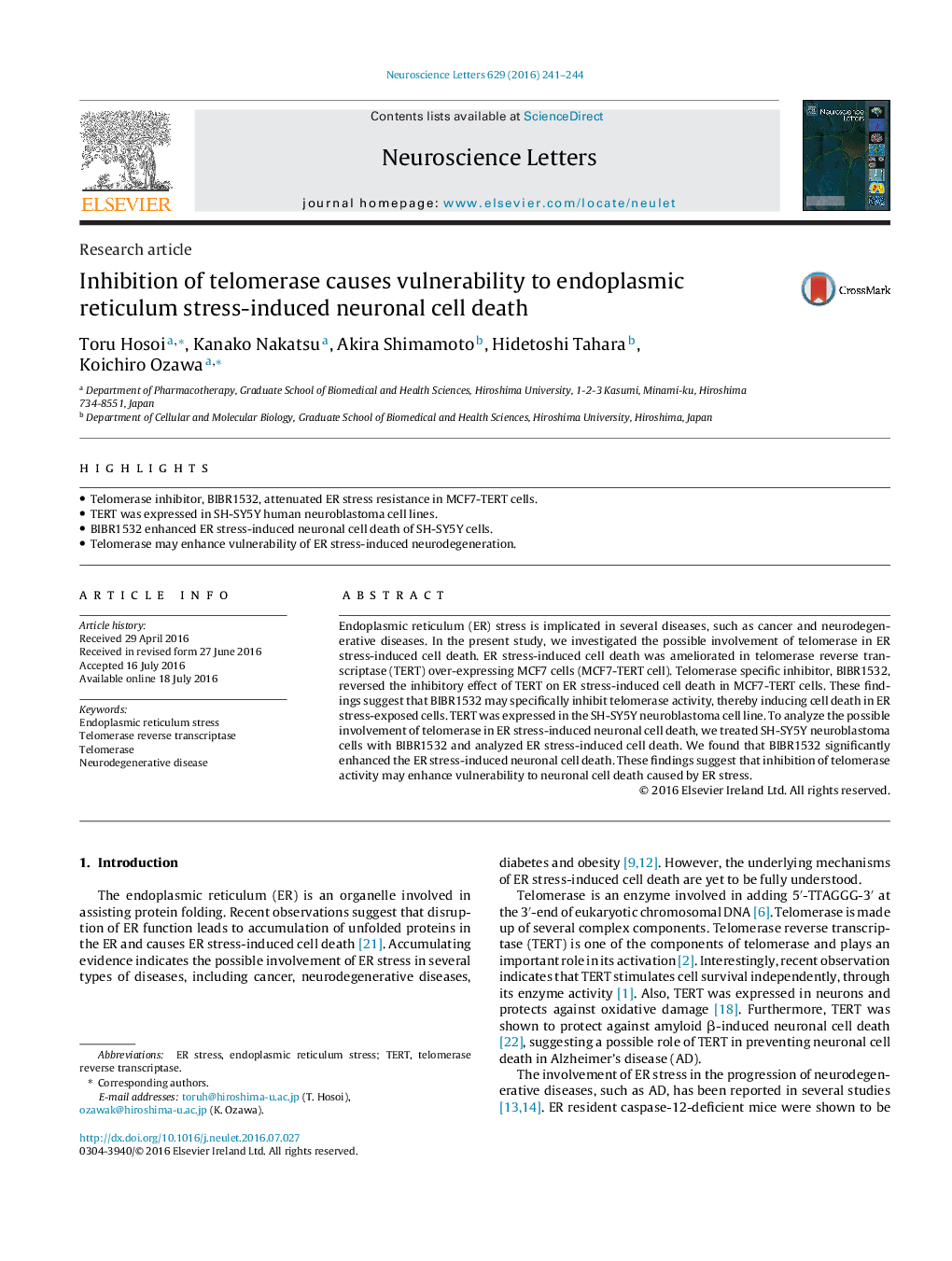| Article ID | Journal | Published Year | Pages | File Type |
|---|---|---|---|---|
| 4343243 | Neuroscience Letters | 2016 | 4 Pages |
•Telomerase inhibitor, BIBR1532, attenuated ER stress resistance in MCF7-TERT cells.•TERT was expressed in SH-SY5Y human neuroblastoma cell lines.•BIBR1532 enhanced ER stress-induced neuronal cell death of SH-SY5Y cells.•Telomerase may enhance vulnerability of ER stress-induced neurodegeneration.
Endoplasmic reticulum (ER) stress is implicated in several diseases, such as cancer and neurodegenerative diseases. In the present study, we investigated the possible involvement of telomerase in ER stress-induced cell death. ER stress-induced cell death was ameliorated in telomerase reverse transcriptase (TERT) over-expressing MCF7 cells (MCF7-TERT cell). Telomerase specific inhibitor, BIBR1532, reversed the inhibitory effect of TERT on ER stress-induced cell death in MCF7-TERT cells. These findings suggest that BIBR1532 may specifically inhibit telomerase activity, thereby inducing cell death in ER stress-exposed cells. TERT was expressed in the SH-SY5Y neuroblastoma cell line. To analyze the possible involvement of telomerase in ER stress-induced neuronal cell death, we treated SH-SY5Y neuroblastoma cells with BIBR1532 and analyzed ER stress-induced cell death. We found that BIBR1532 significantly enhanced the ER stress-induced neuronal cell death. These findings suggest that inhibition of telomerase activity may enhance vulnerability to neuronal cell death caused by ER stress.
